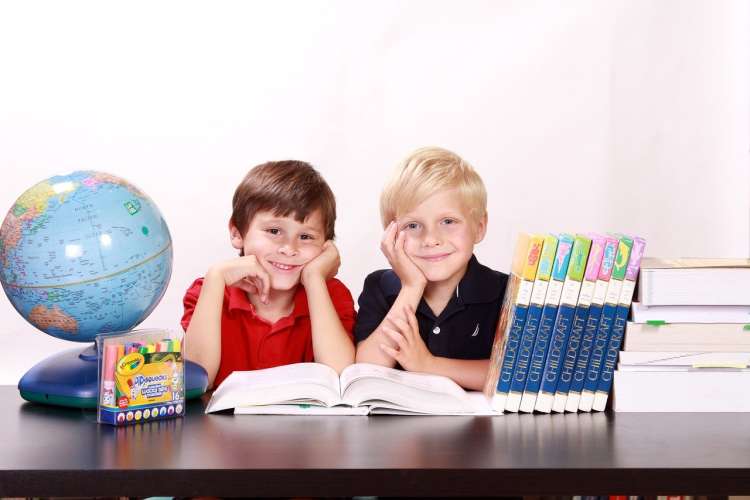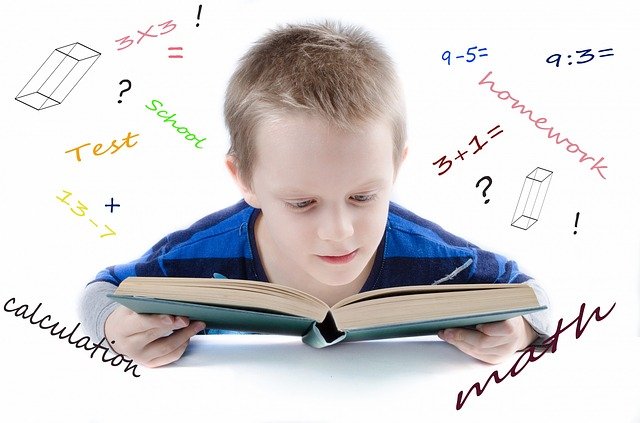How to Prepare Questionnaires for Kindergarten Maths? Here’s a Structured Way at Your Rescue


Kids these days learn through new things and new experiences, everything has become digitalised and kids are more attracted to the new age of technology. The structure of the education system might change but, not the learning and knowledge, that we get. It is still the same and that’s why today also when children are holding a stylus, they don’t forget to hold a pen while they are writing or learning
Children need to be taught and they should develop a habit of now to have a structured way in their life to do anything and planning is very much important.
How to Prepare a Questionnaire for Kindergarten Maths?
This article will provide you with a structured way for how to prepare a questionnaire and we will be providing a way, for parents/guardians at home and for teachers at school
# First, divide the questions of the mathematics based on the levels of the child/students ability
# One should have 5 levels each which will have questions from hard to easy.
# Divide the question paper into three parts and each part should have easy questions and one hard question and some of the other 3 level questions sprinkling
# Then, after they write the answers, please check them thoroughly and have a detailed analysis and then take the average out for the next questionnaire.


How to Prepare a Questionnaire for Kindergarten Maths? Draw Shapes
Practical learning is far better than book learning and that’s how it should be done so that kids acquire the right skills and develop the right habit.
For drawing shapes, parents/guardians and teachers should follow this pattern.
# First, make them understand and look around the house, school, garden, etc and help them recognise shapes there
# Then while preparing the questionnaire, one should keep in mind that they should include the same pictures of what they were pointing to
# Another set of questions should include the actual shapes, as they look
# When the two sets are ready, place the object which you have taught the child/ children and then place the actual shape below it
# It will enhance the critical thinking ability and also the guessing factor which is very important.
Maths for Kindergarten
Maths is a subject which is used everywhere and every child in their budding ages should learn and practice maths. Maths are included in our routine, such as brushing our teeth, getting dressed, sleeping, and going out for shopping, cinemas, parks, etc. Everything needs to be calculated and measured, even our decisions, so maths should be taught to kids right from the age of 3.
Maths Activities for Kindergarten
Play Card Addition
Have 5 cards with numbers from 1 to 5 and place then place them so that the number is not visible. Allow your child to pick two cards and tell them to add or subtract the two numbers which they have picked, this will help in learning with fun.
Finish the Pattern
While recognising shapes, I should gather as many things as possible and place them in front of them. gather a pair of objects, place them near your kids, and only give them one from each pair and tell them to finish the pattern by choosing the other one from the pair.
Button Sorting
Kids like different patterns and shapes, so button sorting is a great thing to do. Give some buttons to your kids of different shapes, sizes and colours and tell them to arrange them by the characteristics. This will help them in developing their skills for choosing.
Also Read: Math Game For Kids: Develop Maths Skills with a Mix of Fun and Entertainment
Maths Concept for Kindergarten
Understanding concepts is a big task for kids and making them sit and learn is bigger than that.
The 4 concepts for kindergarten students are
Counting
Every child begins their mathematics by counting and writing the numbers. They start to count objects, things that are around them and compare the results and make their analysis.
One should always encourage their child to touch different objects, move them, count them, write them down, and use measurement vocabulary to help them understand it.
Addition and Subtraction
Telling stories of ‘Once upon a time there were two bananas and then two apples became friends, so tell me how many friends are there in total?’ the masking them to draw and visualise the numbers and add and subtract them. Telling them to use their fingers or can use their stationary to count things.
Measurement and Data
While playing with them ask them which of your toys weighs more or which is bigger, they start analysing the things and then come to comparing things too, they start to use words like ‘That is bigger than this but, this is heavier.’ This shows they are comparing and understanding the measurements concepts and serving the data.
Geometry
When they are using the appropriate language to determine shapes ask them to again look around and encourage them to understand the 2D and 3D objects differently and count the number of sides, edges, symmetries, etc.
Conclusion
Most kids hate maths and that’s why they find excuses to run away from it, but if you make it fun they will understand it and like it. The Real School Of Montessorichool has many courses and fun activities to help children develop an interest in maths.
Also Read: Maths Puzzles for Kids: How to Make Maths Fun for Kids? Check this to Know-How
Recent Posts
What are the Advantages of Online Teaching at The Real School?
In the article -"What are the Advantages of Online Teaching at The Real School?" we…
What is the Full Form of School?: Unveiling the Acronym
The term "school" carries profound significance in the realm of education, representing more than just…
What is Math Full Form?: Cracking the Code
Mathematics, often referred to as "Math," is a subject that elicits various reactions from students…
What is Full Form of Homework?: Decoding Academics
Homework, an integral part of the academic journey, often raises questions about its purpose and…
What is Full Form of Teacher?: Demystifying Education
In the intricate tapestry of education, teachers stand as the pillars shaping the intellectual and…
What is Real Education?: Discovering Its Essence and Impact
The concept of real education is evolving, transcending traditional views that equate it solely with…


